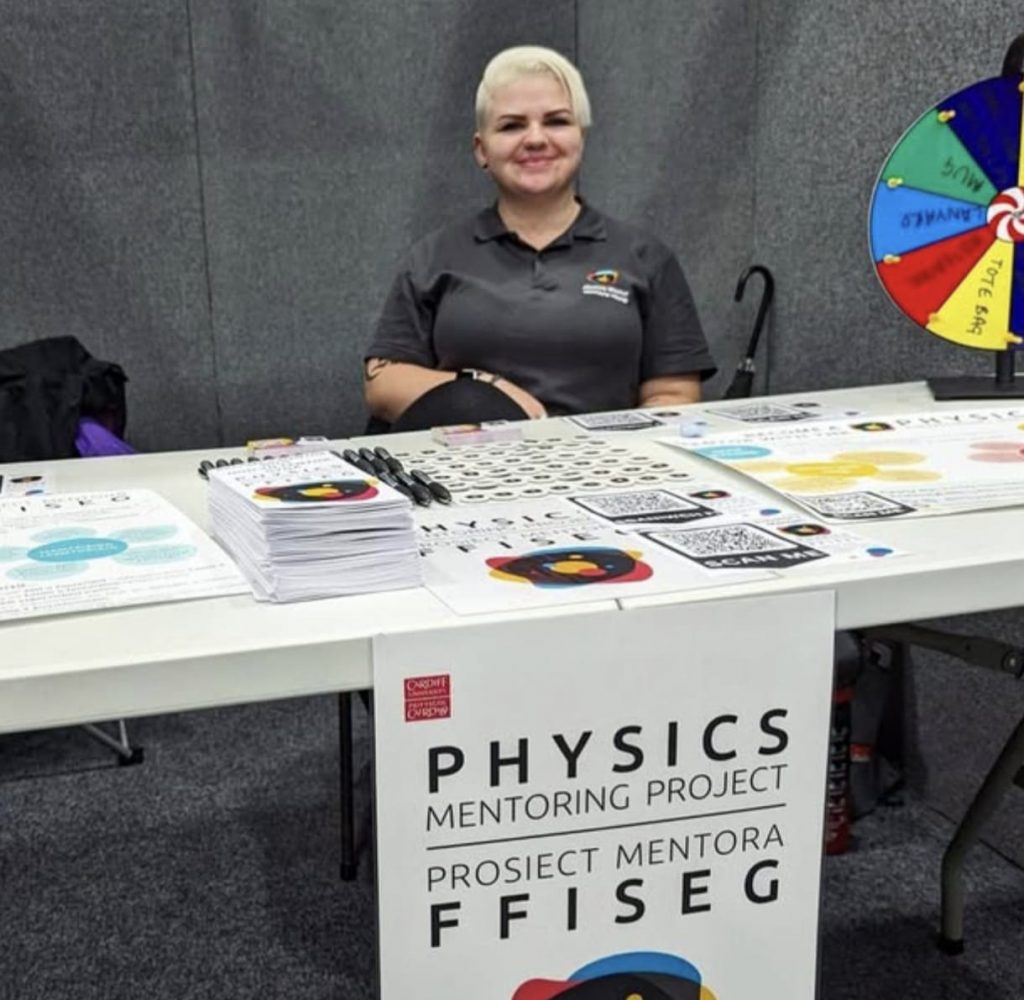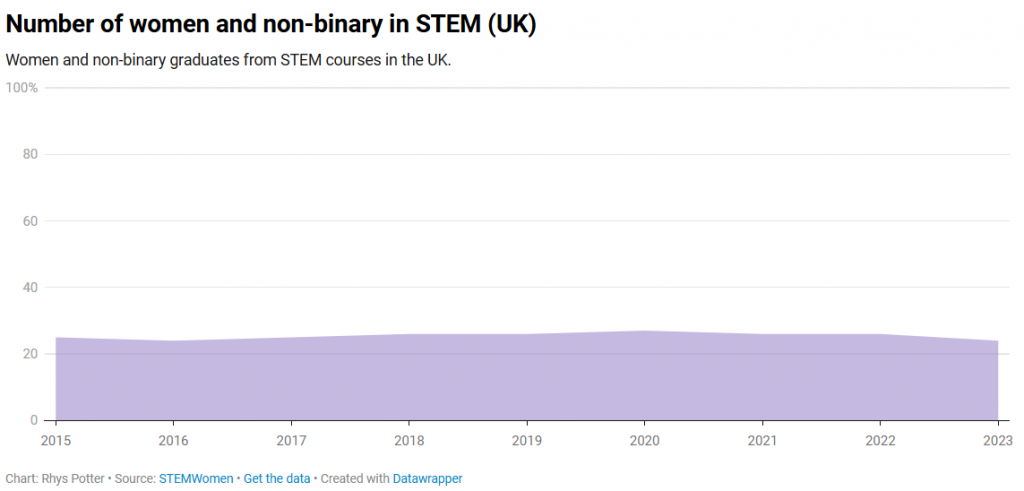Women continue to face barriers accessing science and engineering education in Wales.
While initiatives like STEM Cymru and Technocamps are helping, many women still feel overshadowed in male-dominated fields. The number of graduates has not increased in the last ten years.
Tia-Jade Allen, a Cardiff University Student and physics mentor, says she thought “women didn’t belong in science” up until the age of 14, when she had her first female science teacher.
Now, she is determined to change that for the next generation, and mentors young women and girls to help them see a future in science and engineering.
[Women] tend to be spoken to a little bit more as though we’re children.
Tia said: “sometimes I feel like women can be overshadowed. A lot of the time if a female student needs help, then we tend to be spoken to a little bit more as though we’re children”.
Such experiences discourage women from staying in STEM, and highlight the need for changes within education and the industry.

For Tia, being part of a mentoring programme is a way to drive change.
“Being a student for me is about making the most of my time, and personally, that’s influencing women to study physics– particularly younger girls who can learn from someone who is in the industry, which is an opportunity I didn’t have” .
“I really want to change the dynamic for women in STEM, and the Physics Mentorship Project is a fantastic way to do that. We work in schools across Wales to tutor girls, encourage them, and give them the confidence to move forward instead of feeling they must constantly battle in a male-dominated industry.”
Despite the lack of increase in women taking STEM subjects at university, the number of women in science and engineering jobs has increased across Wales.
Institutions such as Cardiff University and Swansea University have been significant in promoting STEM education for women. However, some concerns remain over how the statistics are presented.
The 31% representation of women and non-binary students in the STEM fields in the UK combined two separate distinct groups. This may give the impression that progress for women is greater than it actually is.

To close the gender gap in STEM in Wales, Tia says a multi-step approach is needed.
She said schools should encourage young girls to take interest in STEM subjects, with programmes like Physics Mentoring Project already helping. The Welsh Government supports women in STEM with funding, scholarships, and awareness campaigns – but Tia thinks more investments and initiatives are needed to make a bigger impact.

